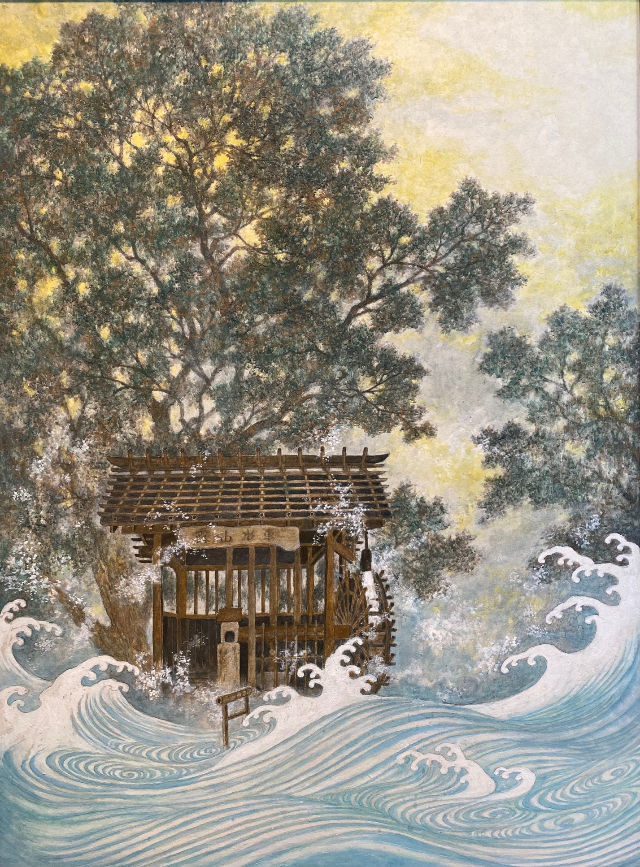THE GROUP AS A SOCIAL ENGINE
- Rebecca Otowa
- May 9, 2025
- 5 min read

Sorry to be so late in posting this blog! I have been busy with other stuff recently and didn’t feel like adding “write blog” to the list of Things to Do. This is number 89, only 12 to go till 100! Stay tuned for what I’m going to do after that.
As a person who has lived in Japan for almost 50 years, I can give a certain idea of the place. In this blog I would like to address one of the most important differences between “Japan” and “the West”, the issue of where society gets its energy – from the group or from the individual.
Japan is one of several countries, mostly in Asia, probably the most visible one at the moment, which takes its social energy from the group rather than from a sense of the individual. In this social climate, it is advantageous for a person to do what is expected of them, and not advantageous to do anything unexpected. Many have used the following proverbs to illustrate this point. In English “the squeaky wheel gets the grease”, In Japanese “deru kui wa utareru” or “The stake that sticks up gets pounded down”. These two proverbs are usually mentioned in a discussion of the difference between the two societies and languages. In both cases, however, the object gets what it wants or is supposed to want. The wheel gets grease, and shuts up, and the stake is pounded down until it is the same height as its neighbors, and doesn’t stick out. What is different is the best thing for the group or the individual. In the Western proverb, the wheel that makes noise is the one that gets attended to; it is the individual wheel that needs attention, and gets it. In the Japanese proverb, the stakes that isn’t the same height as its fellows cannot work with the group to accomplish e.g. building a fence. Only when it is the same as the others can it do its job. The difference between rewards (“gets the grease” and “is pounded down”) is a telling one; anyone could be excused for thinking that getting grease is more comfortable than being pounded down. Indeed grease is seen as valuable and good. But the point of the proverb is to tell people what to do in life. Either make noise when you need something individually, or be molded into a group and don’t do anything to endanger that group, which is your safety.
Any action that is thought of as for the good of the group – maintaining quiet in the train, cleaning around your house or place of business, carrying your trash home instead of complaining about the lack of trash cans – is thought to be good for society. Groups come in many shapes and sizes – from groups of neighbors to members of a class or employees of a company – up to the largest group, the society of Japan as a whole; and ostracism from any group is what Japanese people fear the most. This starts very early, with ostracism from the family group an effective punishment for wrongdoing, both now and in days gone by. Historically, people in this country were expected to toe the line. (The Edo period, with its rigidly hierarchical society and far-reaching rules, for not following which the punishment could be death, and wartime, when people were expected to keep their heads down and gaman (endure) for the good of the nation, are two instances that could be regarded as possible causes of this dynamic in modern times.)
I was a teacher for 20 years at a Japanese university, and I was appalled at the way students openly copied from each other, both in their homework and in the examination room. They didn’t see it as bad, whereas for me it was just about the worst thing a student could do. “Do your own work” was pounded into me from an early age, but I didn’t see any evidence of it in my own kids’ school experiences. It was much more important to be the same as everyone else; kids were even encouraged to murmur “Onaji desu” (I got the same) when one student gave a correct answer. Kids were expected to join the group of correct-answer kids and mold themselves in every way into responsible members of society. It was very much a matter of “right” or “wrong” with “right” being what the group did. They weren’t expected to think individually what was right.
Let’s think about personal responsibility. In Japanese the word that is most often translated as this is sekinin, which in my understanding means literally “piling on the blame”. If something goes wrong, responsibility in this sense must be assumed.. More like liability, right? Responsibility means “the ability to respond”, to raise one’s hand and say “I’ll do that”. It’s often coupled with individual freedom, which you can’t have without taking responsibility.
But in Japan it isn’t future things one takes responsibility (sekinin wo toru) for, it’s past things. Take the blame, in other words. In this way harmony is maintained within the group. The bad, exceptional thing is wiped out by someone taking the blame, often up to and including ritual suicide, the ultimate blame-taking, still practiced today in some circles. The rest of the group can heave a sigh of relief and go back to their harmonious group existence.
In one vivid example from my own life, I once had a suitcase lost in transit on a domestic flight in the US. Everyone I talked to in the US about this said, either in words or in their manner, “It’s not my fault”. They were seeking to absolve themselves, individually, of blame. It was not until I mentioned my problem to Japanese personnel (of that airline, which was affiliated with a Japanese airline company) that I got what I wanted in the first place, a simple acknowledgement of the inconvenience I was caused by the airline, in the form of an apology. The Japanese staff weren’t apologizing because it was their fault; it couldn’t have been. But they wanted to smooth the waters and have harmony again. Maybe I have just lived in Japan too long, but their attitude, mouthing the words of a culpability they certainly didn’t feel, made me think for the first time that my problem was deemed worthy of consideration and that somehow it would be solved. (It was, when my suitcase arrived at my home a few days later.)
Are Japanese intrinsically kinder or more empathetic than other people? My feeling is, after observing these people for many years, is that this much-vaunted “politeness” is a result of training (some would say brainwashing) in socialization which goes back to primary school days. Sure, it results in a people who are inclined to “show up” others. This is because Westerners, influencers and the like more often than not encounter Japanese in public or group situations where the difference is most pronounced. I think that, in their private lives, Japanese are just as individual as Westerners or anyone else. There simply is less advantage in showing this in public than, perhaps, it is for Westerners, and there is greater advantage in “going with the flow” of the group.
Of course this issue, especially in our modern age, isn’t as cut and dried as this. But long-term residents of Japan would do well to keep it in mind. It does explain to a certain extent why things are the way they are, something we all want to know.



Comments